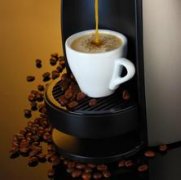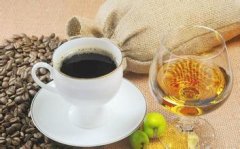A brief introduction to the treatment method of grinding degree and baking degree of fine coffee beans in mild flavor Silver Mountain Manor, Jamaica

Between 1728 and 1768, the Jamaican coffee industry was in ST. There was a great deal of development in the foothills of Andrew, but eventually it gradually developed to the Blue Mountains. In June 1950, the Coffee Industry Association of Jamaica established official standards on the quality of raw beans for export coffee.
Location: central America
Area: 11100 square kilometers
Population: 2826000
Official language: English
Coffee planting area: 9000 ha
Coffee output: 27,000 bags
Coffee variety: Arabica
Coffee characteristics: the myth of the coffee world. Its flavor is mild, clean, soft, fruity and sour, and can meet people's various needs. In addition, the delicious and juicy Blue Mountain coffee has a long-lasting flavor, as drinkers say, with a long aftertaste.
Overall rating: excellent
The real Blue Mountain Coffee is one of the most advantageous coffee growing conditions in the world. The weather, geological structure and topography of Jamaica provide a unique ideal place. The ridge across Jamaica extends to the eastern part of the island, with the Blue Mountains rising to more than 2100 meters. The cool weather, foggy weather and frequent rainfall reconcile the rich land of Rain Water. Here people use mixed planting to grow coffee trees next to banana and avocado trees on terraces.
Some small estates also grow Blue Mountain Coffee, such as Wallenford Estate, Silver Hill Estate and Atlanta Estate in J.Martinez. Even the largest landowners in the region are small-scale growers by international standards, many of whom are small landowners whose families have been working on the land for two centuries. The coffee industry in Jamaica faces a series of problems, such as the impact of hurricanes, the increase in labor costs and the difficulty of mechanizing terraces. It is difficult to rationalize planting on many small estates and farms.
However, Blue Mountain Coffee is one of those coffee retailers that value credibility to stock some coffee no matter what. A leading British retailer said: regardless of the price, he will continue to sell Blue Mountain coffee all year round because he has many customers who only recognize "Blue Mountain".
Now, 90% of the post-harvest Blue Mountain coffee is bought by the Japanese. In 1992, Jamaica sold 688 tons of Blue Mountain coffee to Japan, 75 tons to the United States and 59 tons to Britain. Now that the rest of the world can only get 10% of the output of Blue Mountain coffee, regardless of the price, blue mountain coffee is always in short supply. In the UK, Langford Brothers Brothers has been the only supplier for many years. Later, the Edmunds Group (Edmonds Group) also received supplies from Jamaica's Salda Food Company (Salda Foods).
Langford Brothers Brothers is a licensed Jamaican Blue Mountain Coffee brand.
The difference in transportation between Blue Mountain Coffee and other coffee is that it is transported in barrels with a capacity of 70 kilograms, a replica of Bonifieur barrels produced in Guadeloupe in the last century. The barrel was originally used to carry flour shipped from the United Kingdom to Jamaica, usually with a trademark and the name of the manufacturer. The Coffee Industry Council issues certificates for all authentic Jamaican coffee and bears a stamp of approval before export.
The Jamaican government used to insist that all Blue Mountain coffee is roasted in Jamaica to ensure that the quality remains the same. In fact, baking is a fine art, and it takes experience, training and expensive equipment to do a good job. From the consumer's point of view, coffee beans should be obtained and drunk immediately after baking. Coffee roasting in Jamaica is unlikely to meet this requirement. Now, raw coffee beans from Jamaica can be exported.
The Blue Mountain area refers to some islands to the east of Jamaica, and only the coffee grown here can be called Jamaican Blue Mountain Coffee (JBM). Jamaican Alpine Coffee (Jamaica High Mountain) refers to the fact that coffee is grown in alpine areas outside the Blue Mountain area. Wallenford, Mavis, Old Tavern and Moy Hall are the four most famous statutory blue mountain coffee raw bean processing plants in Jamaica. But these four are not coffee farms, they are raw coffee processing plants, do not grow their own coffee, but buy unprocessed raw coffee beans from small farms in the Blue Mountains area and then deal with them in accordance with official quality standards.
The flavor of the really high-end Jamaican Blue Mountain coffee is purely clean, gentle and gentle, but this is also where blue mountain coffee is more difficult to bake, just like other beans that also come from the island. even the best Jamaican coffee grown at the highest altitude is not the highest in altitude compared with other coffee grown at the highest altitude, and the bean density at lower altitude is lower. Therefore, the things to pay attention to when baking are also different. If you lack the experience of baking high-quality coffee, even if you buy great blue mountain raw beans, you may bake a pot of lifeless ordinary coffee. In addition, the rule of thumb for brewing Blue Mountain Coffee is to increase the amount of beans by 20% in order to get the rich and elegant charming aroma of Blue Mountain Coffee, which is why Blue Mountain Coffee needs to be sold more expensive.
Coffee marks in special producing areas:
In 1728, Sir Nicholas Nicholas Lawes, then governor of Jamaica, introduced coffee from Martinique. Jamaica is an ideal place to grow coffee, and nine years after it was introduced, they began to export about 83000 pounds of beans a year.
Important Notice :
前街咖啡 FrontStreet Coffee has moved to new addredd:
FrontStreet Coffee Address: 315,Donghua East Road,GuangZhou
Tel:020 38364473
- Prev

Fruity and sour boutique coffee beans in Silver Mountain Manor, Jamaica. Geographical location, climate and sea.
The Blue Mountain area refers to some islands to the east of Jamaica, and only the coffee grown here can be called Jamaican Blue Mountain Coffee (JBM). Jamaican Alpine Coffee (Jamaica High Mountain) refers to the fact that coffee is grown in alpine areas outside the Blue Mountain area. Wallenford, Mavis, Old Tavern and Moy Hall are the four most famous laws in Jamaica.
- Next

Soft and full-bodied Coffee Bean Flavor of Chilmel Manor in Rwanda
Rwanda is a small African country, and the local people are relatively poor, but it produces very good coffee here. Unlike its neighbors Kenya and Ethiopia, Rwanda's coffee is mainly round bourbon. The taste is not as prominent as Ethiopia and Kenya, but the uniformity is excellent. Rwanda has about 33000 hectares of coffee plantations, and 500000 people are engaged in coffee.
Related
- Does Rose Summer choose Blue, Green or Red? Detailed explanation of Rose Summer Coffee plots and Classification in Panamanian Jade Manor
- What is the difference between the origin, producing area, processing plant, cooperative and manor of coffee beans?
- How fine does the espresso powder fit? how to grind the espresso?
- Sca coffee roasting degree color card coffee roasting degree 8 roasting color values what do you mean?
- The practice of lattes: how to make lattes at home
- Introduction to Indonesian Fine Coffee beans-- Java Coffee producing area of Indonesian Arabica Coffee
- How much will the flavor of light and medium roasted rose summer be expressed? What baking level is rose summer suitable for?
- Introduction to the characteristics of washing, sun-drying or wet-planing coffee commonly used in Mantenin, Indonesia
- Price characteristics of Arabica Coffee Bean Starbucks introduction to Manning Coffee Bean Taste producing area Variety Manor
- What is the authentic Yega flavor? What are the flavor characteristics of the really excellent Yejasuffi coffee beans?

